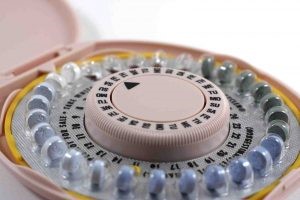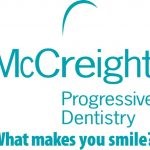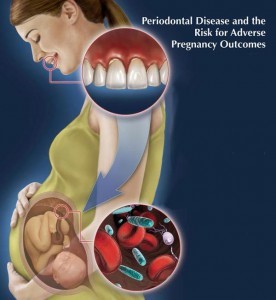Hormonal Changes and Their Relation to Oral Health

From pimples to hot flashes women get very familiar with the hormonal changes we go through. However, most women are unaware that these hormonal surges can trigger a host of dental problems. These dental problems tend to surface during 5 key situations of a woman’s life; Puberty, Monthly Menstruation, the use of birth control pills, Pregnancy, and Menopause. During these stages hormonal fluctuations not only affect the blood supply to the gum tissues but also the body’s response to the toxins (Poisons) that result from the buildup of Biofilm (plaque). Because of these changes, women are more likely to develop Periodontal Disease during these stages.
Puberty

Raging hormones- They just cause us to go a little crazy and make our skin break out right? WRONG! The hormonal dis-balance women go through especially during puberty with the increase of estrogen and progesterone (The hormones necessary to prepare the uterus for menstruation) cause more blood to flow to your gums. Increase of blood can leave a girl’s gums red, swollen, and bleeding as they will react differently to the toxins in biofilm.
How do we combat this? By great homecare and regular visits to the dentist for your cleanings. Most dentists will say to brush and floss more frequently. At McCreight Progressive Dentistry we will urge you to toss the floss and purchase a Waterpik and Sonicare. The combination of the two will make it so that stubborn Biofilm have nowhere to hide. Then we bring Closys and Hydrogen Peroxide to the homecare party, which as mentioned in an earlier blog, “are capable of destroying 99% of a wide variety of disease-causing bacteria.”
Menstruation Cycle
Just as we experience an increase in progesterone during puberty we also experience an increase during menstruation cycles of our life. (Aren’t we oh so lucky!!) Again the proliferated levels of progesterone can cause our gums to react differently to Biofilm. This reaction causes a snowball effect in which the gums get irritated becoming swollen, red and tender. Most experience this change a day or two leading up to their periods with symptoms leaving during the menstruation cycle. I know for me, sensitivity starts 2 days prior to starting my cycle. At which point brushing becomes extremely painful.
To stay on top of my oral health when I experience this pain I usually brush gently where it hurts. However I pay extra attention to those areas when I am waterpiking. Another great tip is to try to schedule your cleanings a week after your cycle ends this way we can get in there and do a great cleaning when the gums are not angry and irritated.
Use of Birth Control Pills

Oral contraceptives of the past used to pump you full of progesterone and estrogen. Luckily that is not the case anymore. With today’s modern medicine the levels of progesterone and estrogen are too low to cause issues with your gums. It is important to always let your dentist know which type of birth control you are using. Some medications can make your birth control less effective. Also you should let your dentist know about your medications when undergoing tooth removal. It has been found by the Journal of the American Dental Association “Women who use oral contraceptives are nearly twice as likely to experience dry socket compared to those who do not. Of 100 women who took birth control, 13.9 experienced dry socket. Only 7.54 of 100 women who did not take birth control had this complication.”
Pregnancy
During pregnancy your body is in hormonal overdrive. This increase in hormones allows harmful bacteria to flourish within your mouth causing mild to severe Biofilm build up. In the dental community we refer to this as pregnancy gingivitis. A mild form of gum disease that causes gums to be red, tender and sore. This is most common from the second to eighth month of pregnancy which is why is it crucial for you to come in for your professional dental cleanings. We suggest trying to get at least two if not three cleanings done during this time which is absolutely safe! This allows us keep a close eye on everything and aide you in removing that stubborn Biofilm. Also remember that everything you intake the baby gets as well, including bacteria. Another great tip is to avoid inflammatory foods such as sugar, refined flour, and fried foods. This is not only great for your oral health but also for the developing baby.
If you are just seeing your dentist for the first time during your pregnancy be sure to tell them that you are expecting a baby and when the baby is due. This will allow your dentist to treat you in the best way possible and ensure the safety of yourself and baby.
Menopause

As we age, many changes occur to us physically. As much as we wish they would bi-pass our mouth that is unfortunately where we can see the changes the most! These changes may include; altered taste, burning sensations, increased sensitivity, dry mouth, and bone loss. The most critical changes to be aware of are dry mouth and bone loss. If not kept an eye on problems can go from having to fix a pothole if you will, to tearing up and replacing the entire road.
Dry mouth can happen for a number of different reasons, one of which being simply aging but also many times it is due to medications that we are on. (Always let your dentist know what medications you are taking, even over the counter Meds that you think we should not be aware of.) One of the most important jobs of saliva is to cleanse the teeth and rinse the cavity-causing bacteria off. Therefore, when you have dry mouth you are putting your teeth at a higher risk of decay (developing cavities). Another important role of saliva is to neutralize acids produced by Biofilm which as we have learned from previous blogs can cause gum disease. A great way to combat this is to have a talk with your dentist, we have options to help! Whether it is changing your toothpaste to a more prescription strength fluoride brand or talking about some foods to incorporate into your diet and some that you should steer clear of.

Examples of Foods that contain high amounts of Vitamin D
We are all aware that as we age the density in our bones lessen. Women, because we are super special in EVERY way also experience bone density loss due to menopause. The loss of density in our bones causes the gums to recede, as the gums recede more of your tooth is exposed. This exposure puts your tooth at larger risk for decay. Now, if we combine that with the fact that we are now producing less saliva we consider that a double whammy.
Pick up the Phone and Call Us
If you or a loved one is struggling with their oral health we are here for you! At McCreight Progressive Dentistry we do much more than filling and drilling, we are also educators. We love answering questions and coming up with new solutions that fit your specific needs. Please contact us at (970)879-4703, visit us online at www.steamboatdentistry.com or check us out on Facebook.
Dr. Wendy and Dr. Jim McCreight along with their experienced Team at McCreight Progressive Dentistry offer exceptional dental care for all ages at our convenient Steamboat Springs, Colorado office.
Looking for a dentist in the Western Slope area? Please call us and schedule an initial hygiene appointment (970) 879-4703.

For other oral tips visit our website
Make sure to Follow and Like us on Facebook for all the latest updates.

